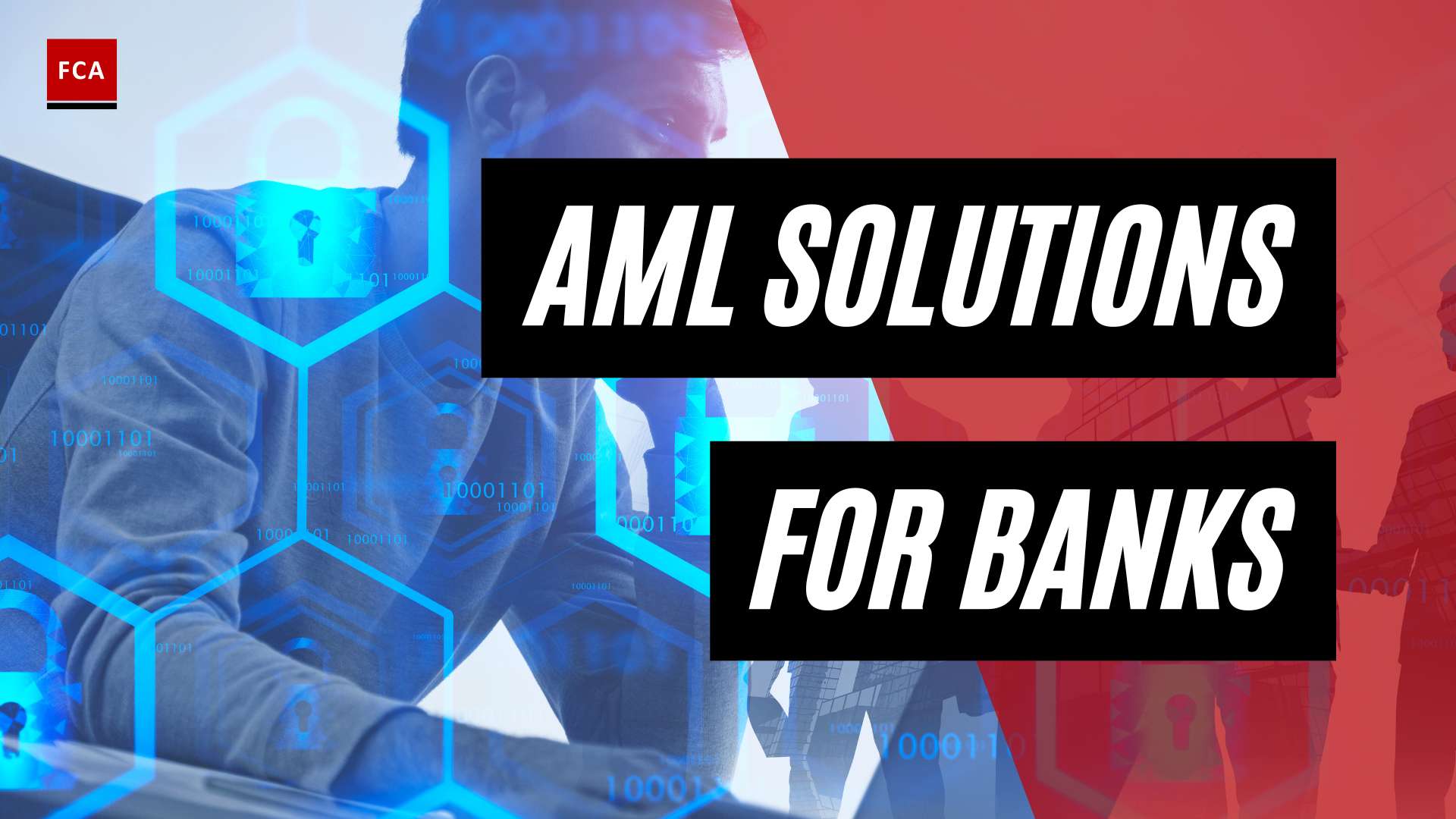AML Compliance in Blockchain
Blockchain technology has emerged as a promising solution for enhancing anti-money laundering (AML) compliance efforts. By leveraging the unique properties of blockchain, financial institutions and businesses can strengthen their AML measures and combat illicit financial activities more effectively.
Introduction to AML Compliance
AML compliance involves ensuring that financial institutions and businesses comply with regulations to detect and report suspicious activities, including the monitoring of transactions and tracking the source of funds. It is a critical component in the fight against money laundering, terrorism financing, and other financial crimes. Blockchain technology can play a significant role in improving AML compliance processes, reducing risks, and enhancing transparency.
Blockchain Technology and AML
Blockchain technology can be used to reduce the risk of fraud and money laundering in the financial sector. Its decentralized and immutable nature provides a trustless, decentralized database to store transactions, making data tampering extremely difficult (Harvard University). By utilizing blockchain technology, financial transactions can be securely recorded and verified, ensuring transparency and integrity of the data.
The decentralized nature of blockchain eliminates the need for a central authority to validate transactions. Instead, transactions are verified by a network of participants, making it more challenging for criminals to manipulate or disguise illicit activities. This transparency and immutability enable more efficient monitoring of financial transactions, making it easier to detect suspicious patterns or behaviors.
Benefits of Blockchain for AML Compliance
The adoption of blockchain technology offers several benefits for AML compliance efforts:
-
Transparency and Traceability: Blockchain provides a transparent and tamper-proof record of transactions, allowing for improved traceability of funds. Each transaction is linked to the previous one, creating an immutable chain of information. This helps in tracking the source of funds and identifying any suspicious or illicit activities.
-
Reduced Costs: The World Economic Forum reports that blockchain technology could potentially reduce compliance costs by 30-50% for financial institutions (LinkedIn). By automating certain AML processes and eliminating the need for intermediaries, blockchain can streamline compliance procedures and reduce operational expenses.
-
Enhanced Efficiency: Blockchain technology enables real-time data sharing and information synchronization among multiple parties. This improves the efficiency of AML compliance processes, such as customer due diligence and transaction monitoring. By leveraging smart contracts and distributed ledger technology, compliance tasks can be automated, reducing manual efforts and human errors.
-
Secure Data Management: Blockchain provides robust data privacy and security features. The decentralized nature of blockchain ensures that sensitive information is not stored in a single central repository, reducing the risk of data breaches. Additionally, blockchain employs cryptographic techniques to secure transactions, protecting the integrity and confidentiality of financial data.
By leveraging the benefits of blockchain technology, financial institutions and businesses can enhance their AML compliance measures, strengthen their defenses against money laundering, and create a more secure and transparent financial ecosystem.
In the next section, we will explore the challenges and considerations associated with AML compliance in blockchain, including data privacy and security, scalability, regulatory uncertainty, and collaboration among stakeholders.
Challenges and Considerations
As with any technological innovation, incorporating blockchain technology into anti-money laundering (AML) compliance efforts presents its own set of challenges and considerations. It is crucial to address these challenges to fully harness the potential of blockchain in combating money laundering and financial crimes.
Data Privacy and Security
Data privacy and security are paramount concerns in the realm of AML compliance, especially when utilizing blockchain technology. While blockchain offers inherent security features such as immutability and transparency, protecting sensitive information within the blockchain ecosystem requires careful consideration.
To ensure data privacy, encryption techniques can be employed to secure sensitive information stored on the blockchain. Additionally, access controls and permissioned blockchains can be implemented to restrict access to authorized individuals or entities. These measures help safeguard sensitive data from unauthorized access, enhancing the overall security of the AML compliance process.
Scalability and Interoperability
Scalability and interoperability are key challenges when implementing blockchain technology for AML compliance. As the volume of transactions increases, the blockchain network must be capable of handling the growing workload without compromising efficiency or transaction speed.
Efforts are being made to address scalability challenges, such as the development of off-chain solutions and layer-two protocols. These solutions aim to alleviate the strain on the blockchain network by processing certain transactions off the main chain, thereby increasing scalability and reducing transaction costs.
Interoperability is another critical consideration. To effectively combat money laundering and financial crimes, various stakeholders, including government agencies, financial institutions, and technology providers, must collaborate. Establishing interoperability between different blockchain platforms and networks enables seamless data sharing and communication, facilitating a more comprehensive and unified approach to AML compliance.
Regulatory Uncertainty and Compliance
Navigating the regulatory landscape surrounding blockchain and AML compliance can be complex. The regulatory environment for cryptocurrencies and blockchain technology is still evolving, with different jurisdictions adopting varying approaches to regulation. This regulatory uncertainty poses challenges for businesses and organizations seeking to comply with AML requirements.
To address these challenges, it is crucial for stakeholders to stay updated on the latest regulatory developments and ensure compliance with relevant AML regulations. Collaboration between government agencies, financial institutions, and technology providers is essential to develop effective AML compliance solutions using blockchain technology and create a robust framework for combating money laundering and terrorism financing in the digital age.
By addressing challenges related to data privacy and security, scalability and interoperability, and regulatory uncertainty, the potential of blockchain in enhancing AML compliance can be fully realized. Continued collaboration, innovation, and adherence to regulatory standards will play a vital role in leveraging blockchain technology to combat money laundering and protect the integrity of financial systems.
Collaboration and Frameworks
To effectively combat money laundering and enhance AML (Anti-Money Laundering) compliance in blockchain, collaboration between various stakeholders is crucial. This section explores the collaboration between government entities, financial institutions, and technology providers, as well as the importance of international standards and guidelines set by the Financial Action Task Force (FATF).
Government, Financial Institutions, and Technology Providers
Developing robust AML compliance solutions in the blockchain space requires collaboration between government agencies, financial institutions, and technology providers. Each stakeholder plays a vital role in creating a framework that addresses the unique challenges associated with AML compliance in blockchain.
Government bodies have the responsibility of establishing legal and regulatory frameworks that guide AML compliance efforts. They provide oversight, enforce regulations, and work closely with financial institutions and technology providers to ensure compliance. By working together, these stakeholders can shape policies and regulations that foster innovation while effectively combating money laundering and terrorist financing.
Financial institutions, such as banks and cryptocurrency exchanges, are at the forefront of implementing AML compliance measures. They are responsible for monitoring transactions, applying risk-based approaches, and reporting suspicious activities. Collaboration with government agencies and technology providers is essential for developing effective AML programs and leveraging advanced technologies to enhance compliance efforts.
Technology providers, including blockchain developers and AML software companies, play a crucial role in creating innovative solutions that enable AML compliance in blockchain. They develop tools and platforms that facilitate transaction monitoring, identity verification, and risk assessment. Collaborating with financial institutions and government entities allows for the integration of these technologies into existing compliance frameworks, improving the efficiency and effectiveness of AML efforts.
Through collaboration, government entities, financial institutions, and technology providers can work together to address the challenges associated with AML compliance in blockchain. This collaboration ensures that innovative AML technologies are implemented within a regulatory framework, promoting transparency, security, and trust in financial transactions.
International Standards and FATF Guidelines
In the global fight against money laundering and terrorist financing, international standards and guidelines play a crucial role. The Financial Action Task Force (FATF), an intergovernmental organization, sets these standards and provides guidance to countries and businesses worldwide.
FATF establishes international standards for AML and counter-terrorism financing (CTF) policies. These standards are designed to ensure that countries have robust AML/CTF frameworks in place to combat money laundering effectively. Cryptocurrency exchanges, as part of the financial sector, are expected to adhere to these standards to prevent illicit activities in the digital realm.
By complying with FATF guidelines, financial institutions and cryptocurrency exchanges can implement effective AML measures in line with international best practices. These guidelines cover various aspects, including customer due diligence, suspicious transaction reporting, and risk-based approaches to AML compliance. Adhering to these standards helps promote consistency, transparency, and accountability in combating money laundering and terrorist financing globally.
Collaboration and adherence to international standards are essential for creating a unified effort in combating money laundering in blockchain and ensuring AML compliance. By working together and following established guidelines, government entities, financial institutions, and technology providers can build a strong foundation for a secure and compliant financial ecosystem.
AML Compliance in Cryptocurrency Exchanges
Cryptocurrency exchanges play a crucial role in the financial landscape, providing a platform for individuals to buy, sell, and trade digital currencies. However, due to the risks associated with money laundering and terrorist financing, ensuring robust Anti-Money Laundering (AML) compliance measures within these exchanges is of paramount importance.
Importance of AML Compliance in Crypto
Cryptocurrencies have gained popularity among financial criminals due to factors such as anonymity and the decentralized nature of the industry. This makes it attractive for money launderers to convert illicit funds into legitimate currency. Cryptocurrency exchanges must prioritize AML compliance to prevent their platforms from being exploited for illicit activities (Sanction Scanner).
Implementing effective AML practices helps cryptocurrency exchanges identify and report suspicious activities, detect potential money laundering schemes, and safeguard their reputation and integrity. By adhering to AML regulations and frameworks, these exchanges demonstrate their commitment to combating financial crimes and ensuring a secure environment for their users.
AML Regulations and Frameworks
To combat money laundering and terrorist financing effectively, cryptocurrency exchanges are expected to adhere to international standards set by organizations such as the Financial Action Task Force (FATF). The FATF sets guidelines and regulations for AML and Counter-Terrorist Financing (CTF) policies. Compliance with these standards is crucial for exchanges to establish robust AML programs (Finance Magnates).
Cryptocurrency exchanges must implement comprehensive Know Your Customer (KYC) procedures, which involve verifying the identity of their customers and conducting due diligence checks to mitigate the risk of facilitating illicit transactions. By adhering to these regulations and frameworks, exchanges contribute to the global effort to combat money laundering and terrorist financing.
Risk-Based Approach and Automation
A risk-based approach is essential in AML compliance for cryptocurrency exchanges. This approach allows exchanges to allocate resources effectively by focusing on high-risk areas. By identifying and prioritizing potential risks, exchanges can streamline their compliance efforts and enhance the overall effectiveness of their AML programs. Risk-based assessments help exchanges determine the appropriate level of due diligence required for different types of customers and transactions.
Automation and advanced technologies play a vital role in enhancing AML compliance in cryptocurrency exchanges. Blockchain analytics and artificial intelligence can be utilized to detect and analyze transactions, identify suspicious patterns, and generate alerts for further investigation. These technologies enable exchanges to enhance compliance efficiency, improve detection accuracy, and reduce the number of false positives. By leveraging automation, exchanges can achieve a higher level of AML compliance and mitigate the risks associated with money laundering and financial crimes.
As the cryptocurrency industry continues to evolve, AML compliance remains a top priority for cryptocurrency exchanges. By recognizing the importance of AML compliance, adhering to regulations and frameworks, and implementing a risk-based approach with automation, these exchanges contribute to creating a safer and more secure environment for users in the crypto space. The future of AML compliance in cryptocurrency exchanges lies in the continuous development of innovative solutions and the adoption of emerging technologies to stay ahead of evolving threats and regulatory requirements.
The Role of Artificial Intelligence (AI)
In the realm of anti-money laundering (AML) compliance, the integration of artificial intelligence (AI) has proven to be a game-changer. AI technologies have revolutionized the way financial institutions and regulators approach AML compliance, offering advanced capabilities that enhance efficiency and effectiveness in combating money laundering activities.
AI in AML Compliance
The application of AI in AML compliance has shown promising results. According to a study conducted by McKinsey & Company, AI has the potential to reduce false positives in AML activities by up to 30-50% (LinkedIn). By utilizing machine learning algorithms, AI systems can analyze vast amounts of financial data, identify patterns, and detect suspicious transactions more accurately and efficiently than manual methods.
Financial institutions, such as Danske Bank, have implemented AI-driven systems for transaction pattern monitoring to enhance their ability to flag potential money laundering activities. Furthermore, blockchain technology is being leveraged to establish secure and transparent customer data records, streamlining know your customer (KYC) processes and enhancing compliance efficiency (LinkedIn).
Reducing False Positives
One of the significant challenges in AML compliance is the high number of false positive alerts generated by traditional rule-based systems. These false positives can overwhelm compliance teams and divert their attention from genuine risks. AI addresses this issue by leveraging its analytical capabilities to identify subtle patterns and anomalies that may indicate potential money laundering activities.
AI algorithms can learn from historical data and adapt to evolving money laundering techniques, improving the accuracy of transaction monitoring. By reducing false positives, AI enables compliance teams to focus their efforts on investigating genuine risks, saving time and resources.
Enhancing Compliance Efficiency
The integration of AI in AML compliance processes enhances overall efficiency. Automation and advanced technologies, such as blockchain analytics and AI, are increasingly being adopted by cryptocurrency exchanges to enable faster and more accurate detection of suspicious transactions and activities (Finance Magnates). These technologies enable real-time monitoring and analysis of transactions, significantly improving the detection of potential money laundering activities.
AI-powered systems also streamline the compliance workflow by automating repetitive tasks, such as data collection, risk assessment, and report generation. This automation reduces manual errors, enhances operational efficiency, and allows compliance teams to focus on more complex tasks that require human expertise.
By harnessing the power of AI, financial institutions and regulators can stay ahead in the fight against money laundering. The integration of AI in AML compliance not only improves detection capabilities but also enhances operational efficiency, enabling more effective risk management and safeguarding the integrity of the financial system. As technology continues to advance, AI will play an increasingly vital role in the ongoing battle against money laundering in the era of blockchain and digital finance.
Risks and Enforcement Actions
As the use of cryptocurrencies continues to grow, so does the risk of money laundering in this digital realm. Cryptocurrencies like Bitcoin have become a favorite among financial criminals due to their market capitalization and stable value, making them ideal for money launderers aiming to convert illicit funds into legitimate currency. Other digital currencies are also utilized to disguise illicit transactions, exploiting aspects like unregulated exchanges without KYC checks or cryptocurrency ATM transactions (Sanction Scanner).
Risks of Money Laundering in Cryptocurrencies
Cryptocurrency transactions are exploited by money launderers due to the anonymity and decentralized nature of the industry. The failure to implement appropriate safeguards like anti-money laundering (AML) screening results in the cryptocurrency sector being considered high-risk. This can potentially lead to reputational damage, fines, bans, and other severe consequences for companies facilitating unverified transactions (Sanction Scanner).
The transparency of the blockchain has enabled financial watchdogs and law enforcement agencies to develop sophisticated tracing tools. These tools aid authorities in identifying and exposing money laundering activities involving cryptocurrencies. By leveraging the blockchain’s transparency, authorities can uncover illicit schemes and thwart significant cryptocurrency heists.
Regulatory Enforcement and Penalties
Governments worldwide are increasing regulations to combat money laundering and terrorism financing in the cryptocurrency industry. Cryptocurrency companies and exchanges are under pressure to implement comprehensive AML screening procedures to meet international standards. Failure to comply can result in reputational damage, fines, bans, and severe consequences for these entities. Regulatory enforcement actions have been on the rise, with penalties ranging from hundreds of millions to over a billion dollars for AML compliance violations (Reuters).
Importance of AML Programs in Blockchain
The risks associated with money laundering in cryptocurrencies highlight the critical importance of implementing robust AML programs in the blockchain industry. AML programs play a crucial role in preventing and detecting suspicious activities, protecting the integrity of the financial system, and safeguarding businesses from legal and reputational risks. By incorporating comprehensive AML measures, blockchain platforms and companies can demonstrate their commitment to combating financial crimes and ensuring a secure environment for users.
To address the risks and challenges posed by money laundering in cryptocurrencies, it is essential for organizations to stay updated with the evolving AML regulations and frameworks specific to the blockchain industry. By leveraging technologies such as blockchain analytics and AML software, companies can enhance their monitoring and investigative capabilities, strengthening their overall AML compliance efforts. The future of compliance in blockchain lies in the continuous adaptation and improvement of AML measures to address emerging risks and regulatory requirements.
In the next section, we will explore the future outlook for AML compliance in the blockchain industry, including strategies to address challenges, the role of regulatory oversight, and the potential of RegTech solutions in strengthening AML compliance efforts.
Future Outlook
As the world of finance and technology continues to evolve, the future of AML compliance in blockchain holds great promise. Addressing challenges and enhancing AML measures will be crucial in creating a secure and transparent ecosystem for financial transactions. Regulatory oversight and compliance in cryptocurrency, along with the development of advanced RegTech solutions, are key areas to focus on.
Addressing Challenges and Enhancing AML Measures
To fully leverage the potential of blockchain technology for AML compliance, it is essential to address the challenges that arise. Data privacy and security remain important considerations as more transactions are recorded on the blockchain. Striking a balance between transparency and protecting sensitive information will be critical.
Scalability and interoperability are also challenges that need to be overcome. As blockchain networks expand, it becomes necessary to ensure that transaction volumes can be handled efficiently while maintaining the integrity of the AML compliance process. Interoperability between different blockchain networks and traditional financial systems is another aspect that needs attention.
Regulatory uncertainty presents an ongoing challenge for AML compliance in blockchain. Governments and regulatory bodies are continuously working to establish clear guidelines and regulations that address the unique characteristics of blockchain technology. Staying abreast of these evolving regulations will be crucial for businesses operating in the cryptocurrency space.
Regulatory Oversight and Compliance in Cryptocurrency
Regulatory oversight plays a vital role in ensuring AML compliance in the cryptocurrency industry. Governments and financial regulatory bodies are increasingly recognizing the need to establish comprehensive AML regulations for blockchain-based transactions. The Financial Action Task Force (FATF) sets international standards for AML and counter-terrorism financing policies, which cryptocurrency exchanges are expected to adhere to (Finance Magnates). Compliance with these standards is crucial for combating money laundering and terrorist financing effectively.
Cryptocurrency companies and exchanges are under increasing pressure to implement robust AML screening procedures and KYC (Know Your Customer) processes to meet international standards. Failure to comply with these regulations can result in reputational damage, fines, bans, and severe consequences for these entities (Sanction Scanner). Regulatory bodies are actively monitoring the cryptocurrency industry to ensure compliance and protect against illicit activities.
RegTech Solutions for AML Compliance
The intersection of technology and regulation has given rise to innovative solutions in the form of Regulatory Technology (RegTech). RegTech solutions leverage advanced technologies such as artificial intelligence (AI) and machine learning to streamline AML compliance processes.
AI plays a crucial role in enhancing AML compliance in blockchain. AI-powered systems can analyze vast amounts of data, identify patterns, and detect suspicious activities that may indicate money laundering or other illicit financial transactions. By reducing false positives and enhancing the accuracy of AML monitoring, AI can significantly improve compliance efficiency.
The use of blockchain technology itself can contribute to AML compliance by ensuring transparent and immutable transaction records. Blockchain-based systems can streamline KYC processes, securely store customer data, and facilitate effective AML investigations (LinkedIn). These technologies work hand in hand to enhance the overall effectiveness of AML compliance in the blockchain ecosystem.
As the future unfolds, collaboration between government agencies, financial institutions, and technology providers will be crucial. By working together to develop and implement effective AML compliance solutions using blockchain technology, it is possible to create a robust framework for combating money laundering and terrorism financing in the digital age (Harvard University).








